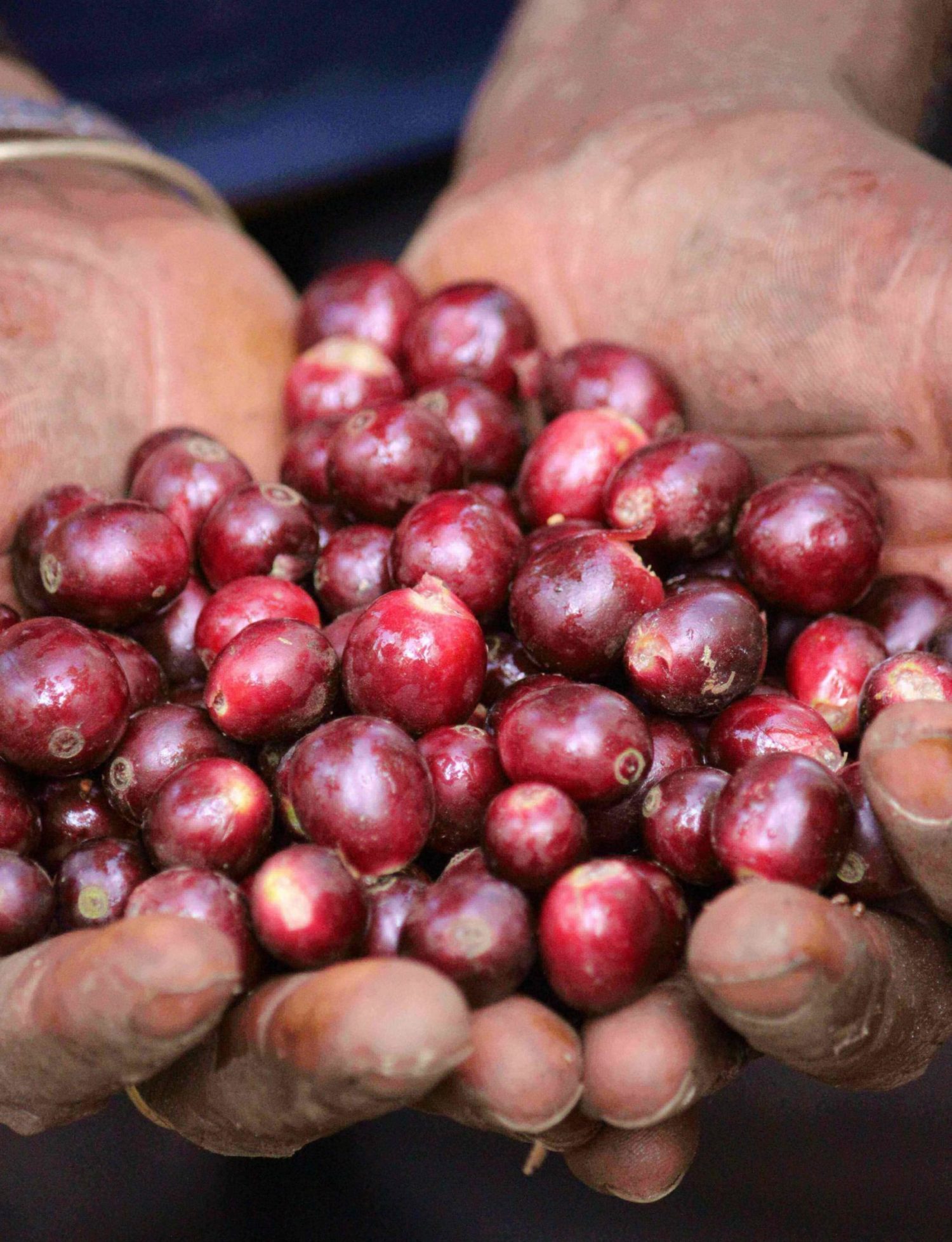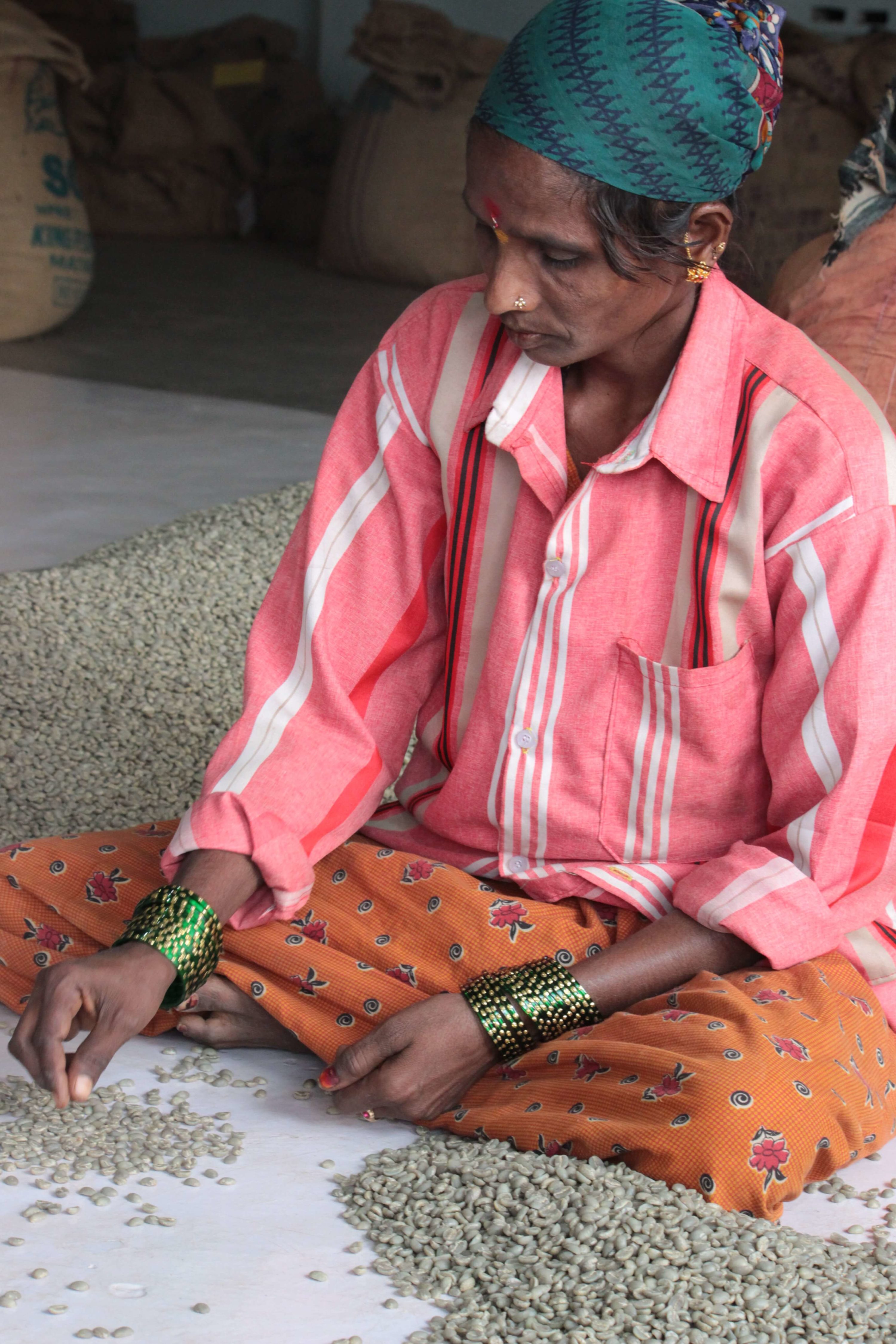Badra Estate, India
13°21’07.0“N 75°28’31.8“E
Jacob's adventurous spirit has resulted in a beautiful range of refreshing varieties
Founded in 1936 by the Mammen family, the magnificent Badra estates are now led by innovator Jacob Mammen.
Covering a total of over 600 hectares, it is one of the biggest farms we work with. All this space provides Jacob with the opportunity to experiment with new processing methods on a large scale. Because of the many washing stations on the farm he can play with different forms of fermentation to see how this influences the flavour.
In his quest to create the highest quality of coffee possible, Jacob doesn’t stop at perfection, but he aims to go way beyond it, innovating and influencing the coffee industry day by day.

Two worlds coming together in perfect harmony!
When we started working with Indian coffee beans several years ago, we were hooked right from the start. They gave a uniqueness like no other. A beautiful full body, flavours going towards spices and herbal notes, sweet, ripe and dried fruits. We couldn’t but fall in love! Depending on the available quantity we work alternately with the catimor, cauvery and superb coffees of the SLN strain from Jacob’s Farm. Deep within the genetics of these varieties we can see two worlds truly coming together: that of the fine and more subtle arabicas and the strong and robust canephoras.
The catimor for example is an arabica coffee but looking at at its genetic family tree, you will discover that it is somehow rooted in the canephora family. It has the caffeine level of an arabica as well as its complex flavours but is carried by a fuller body with natural darker, heavier notes. This provides us with a beautiful and interesting variety.
It shows that, besides cultivating, harvesting and roasting, the actual genetics of the plant are of great importance. Jacob’s innovative spirit and strive for perfection make him continuously search for the best way to produce certain varieties, focusing not only on variety, terroir and picking but also on differences in washing and fermenting.

When India and coffee met one another, it was love at first sight!
The farm is located in the Chikmagalur district in the Bababudangiri hills, commonly known as the birthplace of the Indian coffee industry. Legend has it that in 1640 a monk smuggled some coffee seeds from Yemen to India in his walking cane, since, in those days, it was forbidden to take them out of the country.
He picked those hills as the best place to plant India’s first coffee trees because of many reasons.
The hills have a rich biodiversity which allows the coffee to grow underneath a natural roof made up by teak, rosewood and sandalwood leaves, protecting the plants and influencing its flavours. Moreover, besides coffee, the region is also known for its many spice plantations, including the king of all spices, pepper. The pepper grows as a mixed crop between the coffee plants, cleaning the soil and giving it that extra punch.


